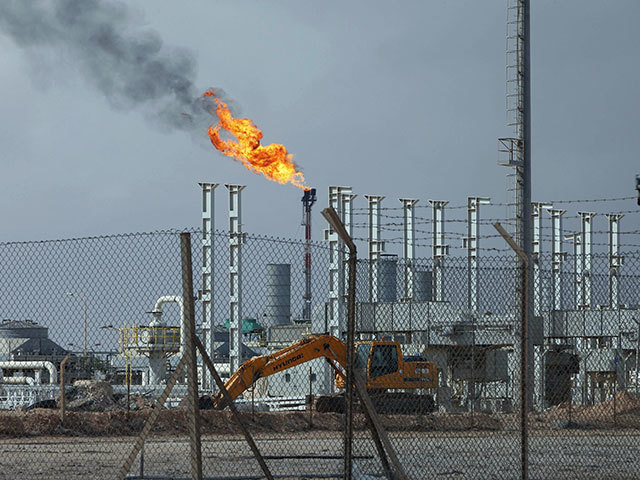
Brent crude traded near the lowest price in three months as Libya’s oil output continued to increase, easing the threat of supply disruptions from the Middle East. West Texas Intermediate fell in New York.
Futures were little changed in London after capping a 3.6% weekly decline, the most since January. Production from Libya, the holder of Africa’s biggest crude reserves, climbed to 470,000 barrels a day, state-run National Oil Corp. said yesterday. Supply from Iraq, OPEC’s second-largest producer, remains unaffected by an insurgency that flared last month.
“We have rising supply out of the Middle East and that casts a negative feel over the market,” Jonathan Barratt, the chief investment officer at Ayers Alliance Securities in Sydney, said by phone. “This is also a period where we should be seeing tighter supply in the US but we’re not really getting that.”
Brent for August settlement was at $106.64 a barrel on the London-based ICE Futures Europe exchange, down 2 cents, at 2.50pm Singapore time. The contract dropped $2.01 to $106.66 on July 11, the lowest close since April 7. The volume of all futures traded was twice the 100-day average. Prices are down 3.8% this year.
WTI for August delivery decreased as much as 49 cents, or 0.5%, to $100.34 a barrel in electronic trading on the New York Mercantile Exchange. The U.S. benchmark crude was at a discount of $6.21 to Brent, compared with $5.83 at the end of last week.
Brent fell for a third week on July 11 as the Sharara field resumed and two oil-export terminals reopened in Libya. The nation pumped 300,000 barrels a day in June, ranking it as the smallest producer in the Organization of Petroleum Exporting Countries.
Rebels seeking self-rule in eastern Libya said they’re committed to an agreement to reopen Es Sider, the nation’s biggest oil port, distancing themselves from a protest that shut a smaller facility. Es Sider has the capacity to load 340,000 barrels a day, according to the Oil Ministry.
In Iraq, fighting remains concentrated in the north, where militants from a breakaway al-Qaeda group known as the Islamic State captured the city of Mosul last month. The conflict hasn’t spread to the south, the source of more than three-quarters of the country’s crude output.
Brent is halting its drop as a technical indicator shows futures have probably slid too quickly to sustain further losses, data compiled by Bloomberg show. The 14-day relative strength index is below 30 for a second day today, signaling the market may be oversold